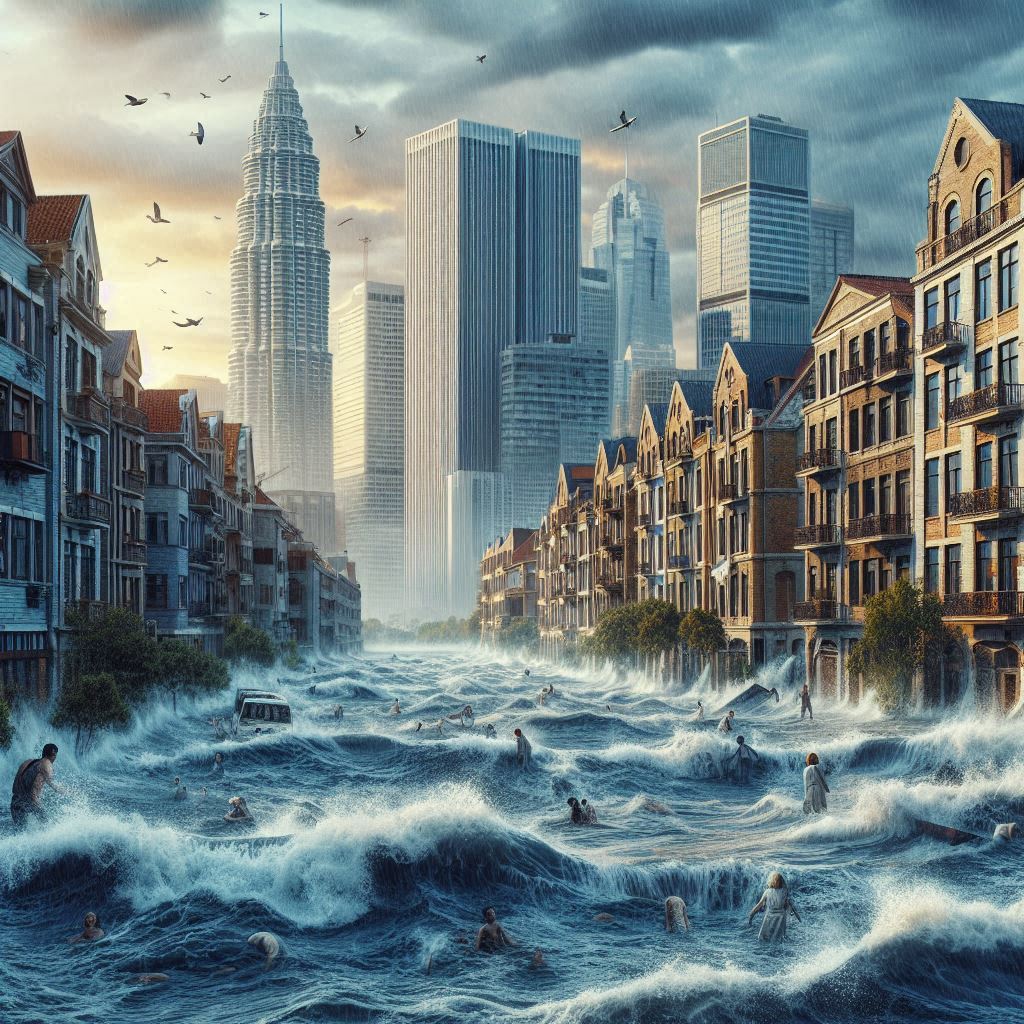Global warming has transitioned from a distant environmental threat to a pressing economic reality. While the consequences of climate change for ecosystems and human well-being are dire, the economic costs are staggering and pose a significant risk to global financial stability. This article delves into the potential financial fallout of inaction on climate change, highlighting the impact on various sectors and offering a stark wake-up call to policymakers, investors, and businesses.
The scientific consensus is unequivocal: human activity, primarily greenhouse gas emissions from burning fossil fuels, is driving global temperatures upwards. The Intergovernmental Panel on Climate Change (IPCC), the leading international body for the assessment of climate change, warns that exceeding 1.5 degrees Celsius of warming above pre-industrial levels will trigger a cascade of devastating consequences [1]. These consequences include rising sea levels, more frequent and intense extreme weather events, disruptions to agricultural yields, and mass migrations due to climate shocks.
The economic impact of these changes will be far-reaching. A 2024 study published in Nature by researchers from Potsdam Institute for Climate Impact Research and Mercator Research Institute on Global Commons and Climate Change estimates that unabated climate change will cost the global economy a staggering $38 trillion annually by 2049 [2]. This represents a potential loss of 5-8% of global GDP, a figure dwarfing the economic impact of past financial crises.
Infrastructure in the crosshairs
Climate change will inflict significant damage on physical infrastructure. Rising sea levels threaten coastal cities and infrastructure with inundation. A 2019 report by the World Bank estimates that global sea levels could rise by up to 82 cm by 2100, displacing millions and causing trillions of dollars in damage [3]. Extreme weather events like floods, hurricanes, and wildfires will also wreak havoc on roads, bridges, power grids, and communication networks. The cost of rebuilding and maintaining infrastructure in the face of a more volatile climate will be a significant burden on governments and businesses.
A perfect storm for agriculture
Food security is another major concern. Climate change is projected to disrupt agricultural production through changes in precipitation patterns, increased heat stress, and the proliferation of pests and diseases. A 2018 report by the International Food Policy Research Institute (IFPRI) estimates that climate change could reduce global agricultural yields by 2-6% by 2050 [4]. This decline, coupled with a growing global population, could lead to food price spikes and exacerbate hunger and malnutrition, particularly in developing countries.
Real estate under water (literally)
The real estate sector is also exposed. Rising sea levels and extreme weather events will render coastal properties increasingly uninsurable and uninhabitable. A 2021 report by the Rhodium Group estimates that climate change could cause $1 trillion in global property losses by 2050 [5]. Additionally, heat waves and droughts will place stress on water resources, impacting property values in water-scarce regions.
The health toll and lost productivity
Climate change will also have a significant impact on public health. Heat waves, air pollution, and the spread of vector-borne diseases like malaria and dengue fever are all projected to increase. The World Health Organization (WHO) estimates that climate change will cause an additional 250,000 deaths per year by 2050 [6]. These deaths, along with increased heat stress and respiratory illnesses, will lead to lost productivity and strain healthcare systems.
Stranded assets and the greening of finance
The financial sector is not immune. Banks exposed to high-carbon industries like coal and oil risk holding “stranded assets” – investments that become worthless as the world transitions to a low-carbon economy. Additionally, the increasing frequency and intensity of climate disasters will lead to higher insurance payouts and potential financial instability.
However, there are also opportunities for the financial sector. The transition to a low-carbon economy will require significant investments in renewable energy, energy efficiency, and climate-resilient infrastructure. This presents a multi-trillion-dollar investment opportunity for investors who can position themselves to capitalize on the greening of the global economy.
The cost of Inaction vs. the price of transition
The economic costs of inaction on climate change are far greater than the investments needed for mitigation and adaptation. The International Energy Agency (IEA) estimates that achieving net-zero emissions by 2050 will require an additional $1.7 trillion per year in clean energy investment by 2050 [7]. While this represents a significant commitment, it pales in comparison to the potential $38 trillion annual cost of inaction.
A call to action for business and policymakers
The urgency of the climate crisis necessitates a coordinated global response. Governments must implement robust carbon pricing mechanisms, invest in clean energy infrastructure, and enact regulations that incentivize sustainable practices across industries. Businesses must also take a proactive stance. This includes conducting climate risk assessments, setting ambitious emissions reduction targets, and investing in clean technologies and circular economy principles. Embracing sustainability is no longer just a moral imperative, but a sound financial decision.
Collaboration is key
Transitioning to a low-carbon future requires collaboration across multiple stakeholders. Governments, businesses, and civil society organizations need to work together to develop and implement effective climate solutions. Public-private partnerships can leverage resources and expertise to accelerate the deployment of clean technologies and climate-resilient infrastructure.
Innovation as the engine of change
Technological innovation will play a crucial role in mitigating climate change. Investments in research and development of clean energy solutions, carbon capture technologies, and climate-smart agriculture are essential. Additionally, fostering green finance initiatives will be critical for channeling capital towards sustainable projects.
The time for action is now
The window of opportunity to limit global warming to manageable levels is rapidly closing. Delaying action will only exacerbate the economic and social costs of climate change. By investing in a sustainable future today, we can create a more prosperous and resilient world for generations to come. Ignoring climate change is not simply an environmental issue, it is the riskiest investment of all. The future of our planet, and our economies, depends on a decisive shift towards a low-carbon future.
Looking forward
The coming decades will be critical in determining the trajectory of climate change and its economic impact. Embracing bold climate action presents not just an existential necessity, but also a significant economic opportunity. By investing in a sustainable future, we can create new jobs, drive economic growth, and build a more resilient and equitable global economy for all.
Photo credit: René Cortin – Flickr – Wikimedia Commons
Sources:
- [1] Intergovernmental Panel on Climate Change (IPCC), https://www.ipcc.ch/
- [2] Nature Research Journal, https://www.nature.com/articles/s41893-023-01132-6, 2024
- [3] World Bank, The World Bank Report, 2019 https://documents1.worldbank.org/curated/en/156401468136816684/pdf/wps4136.pdf
- [4] International Food Policy Research Institute (IFPRI), Global Food Policy Report, 2018 https://www.ifpri.org/publication/2018-global-food-policy-report
- [5] The Rhodium Group, Climate Risk: A Quantified Threat to the Global Economy, 2021 https://rhg.com/energy-climate/data-and-tools/
- [6] World Health Organization (WHO), Climate Change and Health, https://www.who.int/health-topics/climate-change
- [7] International Energy Agency (IEA), Net Zero by 2050: A Roadmap for the Global Energy Sector, 2021 https://www.iea.org/reports/net-zero-by-2050


